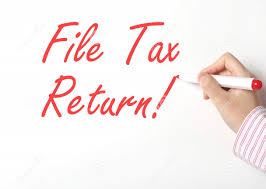April 30th is quickly approaching – are you ready to file your taxes?
For some, this time of year is overwhelming. The below are some tips to help ease the process and ensure you maximize your return.

Tip #1 – FILE your tax return
Even if you think you do not owe tax, or didn’t earn enough to need to file, it is still important to file a tax return.
This misunderstanding can cost you in lost benefits and credits, such as the GST/HST credit, the Canada Child Benefit and provincial credits (for example, the Ontario Trillium Benefit). These benefits are computed based on your filed tax return; if you don’t file, you won’t benefit.
Also, if you are in a refund position, you need to file to get your money back. This refund is money you overpaid throughout the year and will not be returned with interest. Interest free loans aren’t common, so why provide the government with one? File your return to claim what is yours.
Tip #2 – Plan Ahead
A mistake that many people make is to wait until April to concern themselves with their taxes. There are many choices you can make throughout the year that can affect the amount of taxes you owe. For example, RRSP contributions (if they work for you and your future needs), and strategies around capital gains and losses and other investment decision you make. It is good to plan ahead to minimize your taxes wherever legally possible.
It is never too early to start next years’ tax planning!
Tip # 3 – Stay Organized…all year round

On the note of being organized, start accumulating your tax documents much earlier than April to make the process less overwhelming when it comes to filing your tax return. Throughout the year, when you receive a tax-deductible receipt, a T-slip, or anything tax related, keep it in a separate folder marked for your taxes.
Once April comes, you should have everything you need, and this process will also ensure you don’t forget about an invoice.
If you made a donation last year, you may have lost track of it by tax time; however, if you made a point to save the receipt as soon as you receive it, you would be able to take advantage of that deduction.

Tip #4 – Research Tax Credits
Do your research to see what tax credits and deductions may be available to you. You may be leaving money on the table by filing your taxes without first doing your homework. If you need help, refer to the Canada.ca website (1) or my earlier blog 5 Tax Tips for Employees.
Tip #5 – Keep Your Receipts
Make sure to keep all your receipts (for items pertaining to your tax returns) for at least six years from the end of the tax year to which the records relate. If the Canada Revenue Agency does a review of your return, they will want to see documentation for support. If you have thrown out your receipts, you may be denied your claim. This can cost you in taxes owing, penalties and interest.
Hopefully tax season is not too overwhelming for you. If your tax situation gets too complicated for you to handle on your own, seek out the help of a tax professional.
~ EverSavvy Financial


Recent Comments